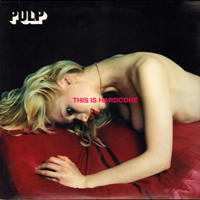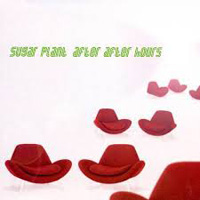 The Consumer
The Consumer
by Michael Gira
(2.13.61 Books, PO Box 1910, LA, CA 90078)
by Nik Rainey
Michael Gira is an extremist. His blunt, carefully chosen words are thick with an almost Puritanical disgust for the flesh, dripping with the ugliest, basest fluids and mired in the farthest reaches of human interaction. Subjugation, loathing, cowardice and corruption are his subjects, endlessly reiterated because the squalid pits of filth we spend our lives sidestepping are both bottomless and ever-present. As leader of the Swans, perhaps the most hated and misunderstood band of the last decade, he created an unsurpassingly punishing sound, a thudding, relentless theatre of cruelty with the bulk of its tortures directed inward. Unlike the majority of his contemporaries, who took to the edge only to find nothing much to do once they got there, Gira dug in his bootheels and refined his vision, artfully detailing his murals of malignance with the sure hand of a demented stonecutter. The Consumer compiles eleven years’ worth of his prose, phantasmagoric nightmarescapes that do for literature what the Swans did for music.
Gira is no cheap shock tactician – he takes the power of language very seriously, and the pieces that take up The Consumer‘s first half are hypnotic in their brute power and awesome in their single-minded control. His themes are enormous and unambiguous, yet his mastery is such that the most fetid scenes are somehow pure and beautifully described. It may seem strange to call such odes to unrestrained repugnance “beautiful,” but the word honestly applies. A random example: “They entered an invisible door that parted inside a flaking mural depicting lewd scenes in a pastoral bacchanalia – Brueghel as seen through the eyes of a 1930’s Hollywood pornographer. When the door shut behind them, the heat was instantly suffocating, like being inside the lungs of a corpse, perfumed with the sharp tang of rotting air. The darkness was total, as if color and light had been vacuumed away down a tube.” Gira’s technique has grown to the point that surprising touches of humor (albeit humor of the darkest available variety) have worked their way in to the dungeon (see “The Consumer, Rotting Pig”).
The pieces that comprise the second half of the book, most of them previously issued, date from 1983-86 and provide a handy reference point to his newer, more classically constructed works. The sentences are shorter and far more blunt and the scenarios they describe more gut-churning. Even here, though, Gira’s discipline is palpable, slicing perfect divots deep into the page with each swing of his bloody verbal scythe. The Consumer is a stunning and compelling collection, an infernal hallucination of mortal torment as vivid as a Bosch painting and a croakingly eloquent testament to the artistry of one of our few true poets of the abyss.



